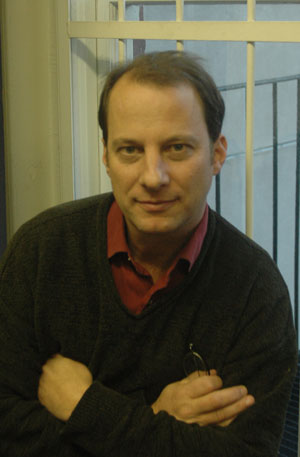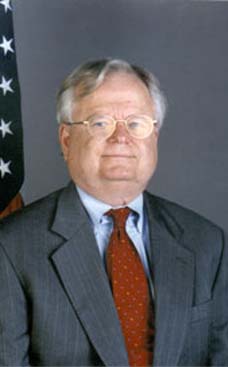
"Though the streets of Baghdad are marginally less lethal than they were during 2006, sixty thousand Iraqis a month continue to leave their homes, according to the International Organization for Migration, joining the two million who have become refugees and the two million others displaced inside Iraq. The militias, which have become less conspicuous as they wait out the surge, are nevertheless growing in strength, as they extend their control over neighborhoods like Ahmed’s. In the backstreets, the local markets, the university classrooms, and other realms beyond the reach of American observers or American troops, there is no rule of law, only the rule of the gun. The lives of most Iraqis are dominated by a complex array of militias and criminal gangs that are ruthlessly competing with one another, and whose motives for killing are more often economic or personal than religious or ideological. A recent report by the International Crisis Group urged the American and British governments to acknowledge that their “so-called Iraqi partners, far from building a new state, are tirelessly working to tear it down.”" Journalist George Packer served as a Peace Corps Volunteer in Togo.
Togo RPCV George Packer writes: Planning for Defeat in Iraq
Planning for Defeat
How should we withdraw from Iraq?
by George Packer
September 17, 2007
[Excerpt]
An Iraqi whom I will call Ahmed lives in Saidiya, an area in south Baghdad where, in the nineteen-eighties, the regime of Saddam Hussein built large houses for well-connected Army officers, most of them Sunnis. After the American invasion, in 2003, Saidiya became a base of Sunni resistance, but since last year vicious sectarian fighting has divided its streets between Sunni and Shia, with front lines crisscrossing the district; the highway separating Saidiya from the Shiite area of Bayya, to the northwest, now marks an impassable boundary. “It’s just like the Great Wall of China,” Ahmed said, during a recent phone conversation. A graduate of Baghdad University, with a degree in English literature, he worked before the war as a news translator for Iraqi state television.
Saidiya has one of the highest rates of sectarian killings in the city. Eighty-four unidentified corpses were found there between mid-June and mid-July, according to Zeyad Kasim, a researcher at IraqSlogger.com, a news-gathering Web site. Ahmed said that the number actually represents an improvement—earlier this year, he saw bodies lying in the streets even more frequently. The U.S. military “surge” launched this spring, in which thirty thousand additional American forces arrived in Baghdad, has helped to stabilize Saidiya’s sectarian borders. The Americans don’t often patrol Ahmed’s neighborhood, but, when Iraqi Army forces call in air support, Apache attack helicopters can reach Saidiya within minutes.
Ahmed has little faith in the Iraqi Army itself. He said that the soldiers behave unprofessionally, don’t respect the chain of command, and seem more concerned with their salaries than with their responsibilities. “Ninety per cent of my neighborhood think the Iraqi Army is hopeless,” he said.
There is no functioning government in Saidiya. The power supply has dropped to less than two hours a day, and for a month Ahmed—a thirty-seven-year-old father of two who suffers from diabetes and a heart condition—could obtain water only from a hole that he dug in his back yard. His neighborhood is under the control of a Shiite militia claiming allegiance to Moqtada al-Sadr, the radical scion of a powerful clerical family, who has emerged as perhaps the most important political figure in Iraq. The militia employs the crippled and the poor to collect protection money, controls a black market for fuel, and forcibly recruits young men into its ranks as lookouts against the Americans. Its local “security” force consists of teen-agers brandishing AK-47s.
Ahmed, who has a Shiite father and a Sunni mother, considers himself a secular Shiite, and, in his view, the religious militias want to force people like him out of Baghdad. “Americans are the safe house for the whole situation in Iraq,” he said. “Once they say they are going to withdraw, the whole country will become a hell.” He went on, “I imagine that no Sunnis will be in Baghdad at all. Baghdad will be only for the Shiite man with the long beard and black imama—the turban. The Americans are representing the taboos, just like ‘Lord of the Flies.’ I imagine the Shiites will be just like that if the Americans have to withdraw. Who can fight will fight, who must leave will leave.” He added, “Those who are weak, who are trying to avoid the savagery, those who are at the edge of being eaten by the Shiite specifically—that will be the end point, that will be their doomsday. The plan, as we hear it, is to make Baghdad empty of Sunnis.”
This week, Ryan Crocker, the U.S. Ambassador in Baghdad, and General David Petraeus, the commander of the multinational forces in Iraq, will give their assessment of the surge to Congress—an event that, in Washington, has taken on the aura of a make-or-break moment for the Administration’s policy. But their testimony is likely to be unremarkable. Administration officials, military officers, and members of Congress described their expectations of it in strikingly similar terms, and a few said that they could write it in advance: military progress, a political stalemate among Iraqis, more time needed.
The Petraeus-Crocker testimony is the kind of short-lived event on which the Administration has relied to shore up support for the war: the “Mission Accomplished” declaration, the deaths of Uday and Qusay Hussein, Saddam’s capture, the transfer of sovereignty, the three rounds of voting, the Plan for Victory, the death of Abu Musab al-Zarqawi. Every new milestone, however illusory, allows the Administration to avoid thinking ahead, to the years when the mistakes of Iraq will continue to haunt the U.S.
The media have largely followed the Administration’s myopic approach to the war, and there is likely to be intense coverage of the congressional testimony. But the inadequacy of the surge is already clear, if one honestly assesses the daily lives of Iraqis. Though the streets of Baghdad are marginally less lethal than they were during 2006, sixty thousand Iraqis a month continue to leave their homes, according to the International Organization for Migration, joining the two million who have become refugees and the two million others displaced inside Iraq. The militias, which have become less conspicuous as they wait out the surge, are nevertheless growing in strength, as they extend their control over neighborhoods like Ahmed’s. In the backstreets, the local markets, the university classrooms, and other realms beyond the reach of American observers or American troops, there is no rule of law, only the rule of the gun. The lives of most Iraqis are dominated by a complex array of militias and criminal gangs that are ruthlessly competing with one another, and whose motives for killing are more often economic or personal than religious or ideological. A recent report by the International Crisis Group urged the American and British governments to acknowledge that their “so-called Iraqi partners, far from building a new state, are tirelessly working to tear it down.”
Read the rest of this story on the New Yorker Web Site.



















